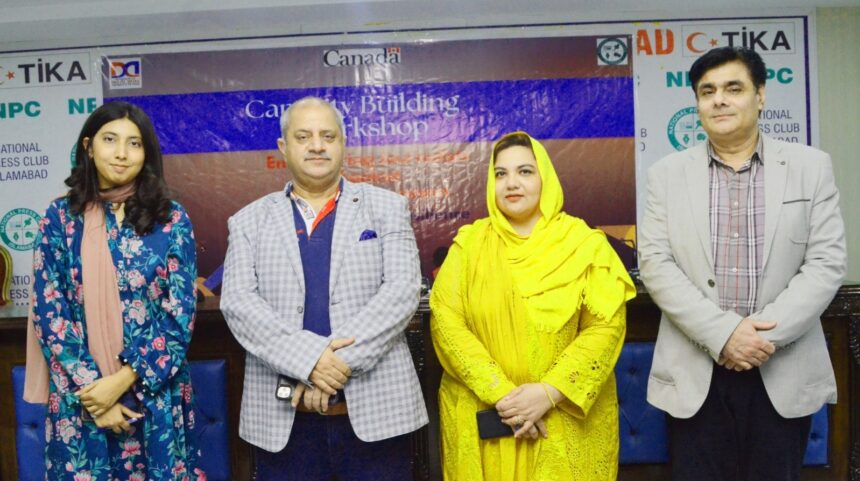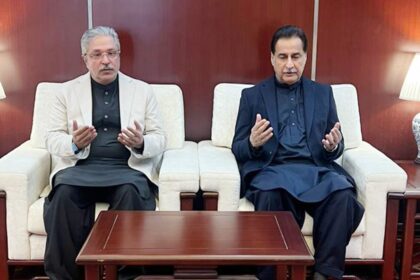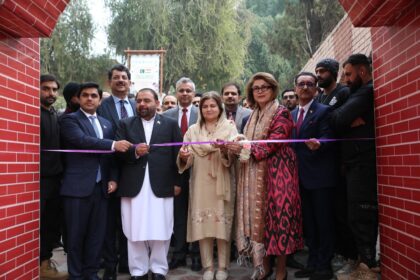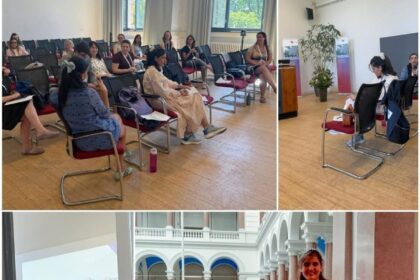The National Press Club Islamabad organised a one-day training workshop on digital safety and protection against online harassment in collaboration with the Canadian High Commission and the Department of Digital Media at Punjab University. Dozens of journalists from the twin cities attended sessions aimed at equipping media professionals with practical tools to identify, prevent and respond to online threats.
Neer Ali, secretary of the Press Club, inaugurated the workshop and underlined the club’s ongoing commitment to strengthen members’ capacities through targeted events. Professor Dr. Savera Majeeb Shami, chairperson of the Department of Digital Media, led awareness sessions that highlighted the urgent risks facing journalists in Pakistan, noting the country’s 2025 World Press Freedom Index ranking of 158 out of 180.
Speakers emphasised how the rapid digitalisation of media has widened reach while creating new vulnerabilities. Social platforms that amplify reporting also enable coordinated trolling, misinformation campaigns, image manipulation, doxxing, stalking and gender-based abuse that frequently spill into real-world threats. Women journalists, in particular, face disproportionate online attacks that can lead to self-censorship and a climate of fear within newsrooms.
The workshop examined existing legal tools, including the Prevention of Electronic Crimes Act (PECA), and recognised their role alongside the limits they currently present: slow procedures, lack of transparency and narrow scope that leave many victims without timely protection. Organisers stressed that laws alone are insufficient and called for precautionary, community-led measures that build resilience and peer solidarity.
Training modules combined technical guidance on cyber security with community-based approaches such as peer support, rapid response protocols and mental health awareness. The event aimed to promote accountable digital engagement while strengthening the technical, emotional and strategic capacities of journalists so they can effectively detect, prevent and respond to digital security incidents within their organisations and networks.
A central element of the initiative is the proposed Women Journalists Digital Safety Network (WJDSN), designed as a peer-led mechanism for knowledge sharing, rapid assistance and institutional coordination. The WJDSN intends to encourage precautionary practices, peer mentorship, and psychosocial support as core elements of resilience for higher-risk and underrepresented communities.
Expected outcomes of the programme include improved institutional understanding among press clubs, media organisations and academic partners about gendered online threats and protective protocols, activation of the WJDSN as a collaborative support mechanism, and strengthened safety cultures inside media organisations through greater reporting awareness and practical digital safety measures.
Participants were presented with certificates at the closing of the workshop, where Pakistan Federal Union of Journalists president Afzal Butt thanked attendees and organisers for their participation. The workshop underscores Canada’s role as a partner in advancing media freedom, gender equality, and inclusive digital transformation in Pakistan while focusing on pragmatic, community-centred protection for journalists.











